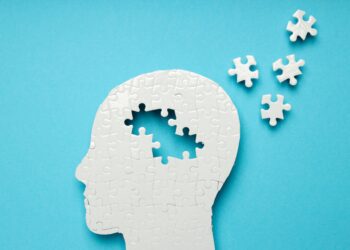We pay more attention to the clock of our phones than the biological one managing our body.
Disconnecting now from the virtual world to rest is key, however, this turns out to be almost impossible because millions of people choose to subtract hours of sleep to accomplish multiple tasks.
Not resting can result in suffering insomnia. The World Health Organization (WHO) defines insomnia as the difficulty to reconcile or maintain sleep, or as the sensation of a restless sleep that generates a remarkable baggage and interference with social and work activities.


In Mexico, for example, the problem is so great that insomnia has become an epidemic that affects more than half of its population, according to the National Institute of Statistics and Geography (INEGI).
The consequences of suffering from insomnia are reflected in having a poor sleep of less than 6 hours, deteriorate little by little the health of the person.
According to the Sleep Clinic of the UNAM, since electric light was invented, the natural time to sleep decreased while nocturnal activities were practiced more frequently.
Watching television at midnight or checking your email and messages before bed has become almost a routine for children and adults; however, these types of actions affect circadian rhythms and cause people to sleep less and worst.
This is because, biologically, circadian rhythms begin to alter the brain, as the first the light of the photoelectric driven through the retina seem like a prolonged sunset to the mind. In short, we pay more attention to the clock of our phones than the one managing our body.
When we stop sleeping to spend more hours connected, our productivity, creativity and resilience breaks, so it is important to have nightly routines to detoxify technology, in addition to having tools that facilitate this.
The defenders of dream
Experts from around the world work in a daily basis to raise awareness about the importance of a good night’s sleep. Meet the work of two of the most prominent:
1.) Dr. Els van der Helm
Founder of Shleep, a company that provides personalized sleep attention to users and companies to improve their productivity and health through better sleep management.
Van der Helm, who holds a master’s degree in neuroscience and a doctorate in psychology, has developed personalized sleep programs, which include a sleep training application, workshops, training and consulting.
2.) Dr. Michael Breus
AKA “The Dream Doctor”, is a psychologist and a member of the American Sleep Academy, he has written three books on the subject, including “Goodnight: Sleep Doctor’s 4-week program for better sleep and better health”, which you should read carefully and the benefits that can help you improve your health.
How much should I sleep?
Know the hours of sleep recommended by ages:
- Up to 17 hours: babies
- 13 hours: pre-school children
- 10 hours: school-age infants
- 9 hours: teenagers
- 7 to 8 hours: adults
- 6 hours: seniors












